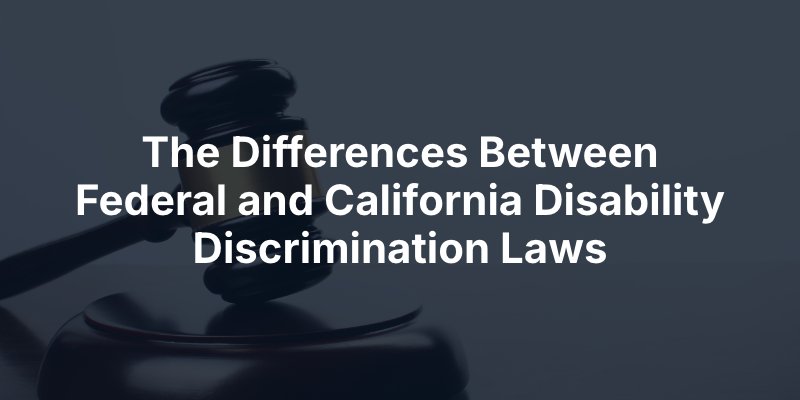Disability discrimination laws exist to protect employees from unfair treatment based on physical or mental impairments. Both federal and California state laws prohibit this form of discrimination, but they differ in several important ways.

The federal Americans with Disabilities Act (ADA) and California’s Fair Employment and Housing Act (FEHA) is essential for any employee asserting their rights in the workplace. While both laws aim to prevent discrimination, FEHA provides broader protections and applies to more workers and conditions than the ADA.
One of the most significant differences lies in the scope of employer coverage:
This lower threshold under FEHA allows more employees to seek legal protection for disability-related claims.
The ADA and FEHA define disability differently, with California law offering a broader interpretation:
FEHA’s more inclusive definition means that workers with short-term or less severe impairments may still qualify for legal protection under state law.
Both the ADA and FEHA require employers to provide reasonable accommodations to qualified individuals with disabilities. However, FEHA holds employers to a stricter standard:
Both laws require the employer to engage in a timely and good faith interactive process to identify effective accommodations, but FEHA gives employees more leverage in enforcing this obligation.
Employees have different options for filing disability discrimination claims depending on whether they are using federal or state law:
California’s procedures are generally more favorable to employees, often leading to faster processing times.
Both laws allow for recovery of compensation for lost wages, emotional distress damages, and attorney’s fees. However, FEHA provides additional advantages:
This means that workers filing under FEHA may have access to greater compensation for harm suffered.
If you have been discrimination against for your disability, contact our Orange County employment lawyers at Aegis Law Firm today.